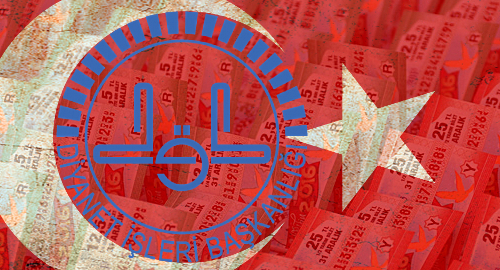 Turkish lottery players are betraying their Muslim faith, according to the country’s top religious gatekeepers.
Turkish lottery players are betraying their Muslim faith, according to the country’s top religious gatekeepers.
Turkey’s Milli Piyango lottery monopoly is scheduled to hold its annual special drawing for the New Year holiday, and recently announced that this year’s draw will feature a guaranteed jackpot of TRY 61m (US $15.9m). This is more than twice the sum the New Year’s draw promised as recently as 2009.
But the Directorate of Religious Affairs (Diyanet), the country’s top religious body, has issued a new fatwa (religious decree) reiterating its stance that purchasing lottery tickets is ‘haram’ (forbidden) because “all gambling games are based on one of the sides winning and the other losing.”
The Diyanet diatribe went on to say that lottery winners had won their windfalls “undeservingly” and that lotteries were worse than other forms of gambling because “masses participate in them,” meaning “the damage of such gambling is more widespread.”
The fatwa made no exception for state-sponsored gambling operations like Milli Piyango, saying that the fact that some of the proceeds were redirected towards charities and other social institutions didn’t negate their haram status.
Diyanet has issued similar fatwas in the past with little impact on the popularity of the state-sponsored operations. That said, warnings such as these, along with the fact that Turkey’s government has been moving in a more fundamentalist direction, could complicate the administration’s ongoing efforts to privatize Milli Piyango’s operations.
Turkish gamblers have limited legal wagering options at their disposal, essentially just the Milli Piyango lottery, the Spor Toto sports betting business and the Turkish Jockey Club’s race betting operations.
Meanwhile, Diyanet also recently weighed in on another thorny modern theological question, namely, can pious Muslims use cryptocurrencies like Bitcoin? In an answer to a question posted to its website, Diyanet noted that it was “permissible to use any kind of money that is generally accepted as a change or value measure between users and gives trust to the user.”
However, Diyanet clarified that this permission didn’t extend to currencies used “as a means of deception” or which embodied “a great deal of ambiguity in the form of production.” As such, Muslims were forbidden from using a cryptocurrency that had “serious uncertainties at its core” and which could lead to “unjustifiable and unjust enrichment.”